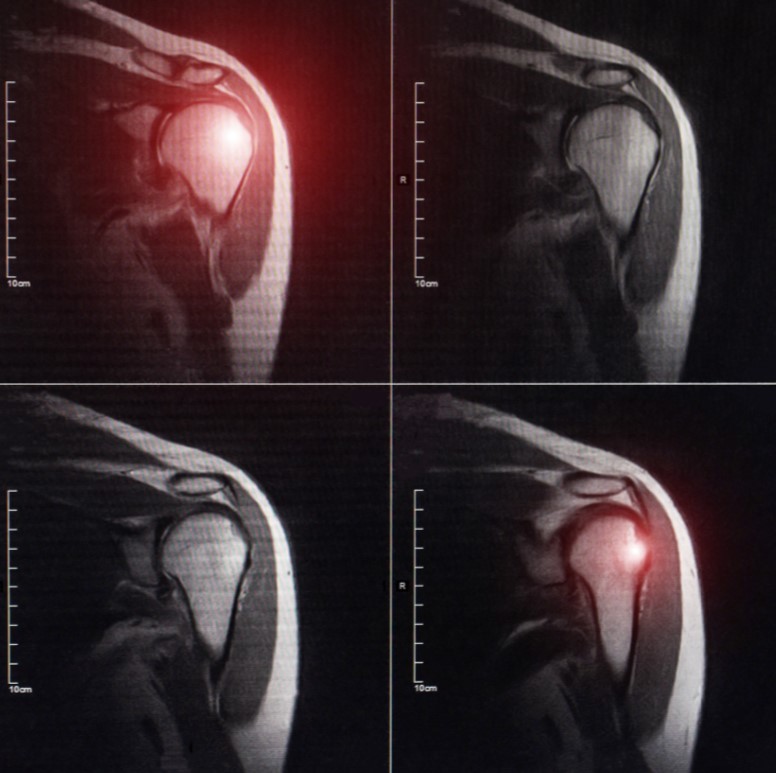
“It was the best of times, it was the worst of times.”
So began Charles Dickens’ A Tale of Two Cities. A frozen shoulder acts something like this.
You know why it’s the worst of times. You can’t reach your kitchen cupboard shelf. Buckling your seatbelt is excruciating. Combing your hair brings tears to your eyes.
The best of times? Well, as far as shoulder problems go, it rarely requires surgery to eventually get you pain free. And I haven’t met many folks who are generally enthusiastic about surgery.
Frozen shoulder, or adhesive capsulitis as we doctors tend to refer to it, loosely describes the condition of stiff shoulder. Stiffness happens for a host of reasons but the two main types are:
- Idiopathic – unknown cause
- Acquired
Middle aged women and diabetics beware, idiopathic frozen shoulder affects you more often. It is also more common in people with thyroid conditions. We don’t totally understand this type of frozen shoulder but think that there is some autoimmune factor involved.
This is the most common type of frozen shoulder and generally comes on slowly and without notice. While it often goes away on its own, the annoying thing is that it can last for over a year in some cases.
Acquired frozen shoulder most often occurs after having shoulder surgery or a severe shoulder injury such as a fracture. It can also arise secondary to prolonged immobilization or inhibition from pain. It can usually be prevented by performing a regimented physical therapy program after shoulder surgery or in the setting of a shoulder injury.
Both types of frozen shoulder involve serious scarring and thickening of the typically elastic capsule tissue around the shoulder joint. Acquired frozen shoulder can be more complex and involve scarring of muscle layers and other tissue layers in the shoulder as well.
OK, so how do you get rid of the pain?
Idiopathic frozen shoulder will often go through about 4 different phases. The first phase tends to be dominated by pain; he second phase by pain and stiffness; the third phase by stiffness alone; and in the last phase, it resolves.
It can be difficult to predict how long it will take you to get full recovery. Usually if you can get through the painful phases you will eventually be able to work your way through to full recovery. I’ve seen some people shake it off in a few months but frozen shoulder can endure for18 months in tough cases. Of note diabetic patients tend to have a higher rate of relapse.
We used to think that physical therapy was the cure all for idiopathic frozen shoulder. Recent studies actually question this. They suggest that doing nothing may be just as effective.
Regardless, I tend to prescribe physical therapy, even if only a gentle home program. One of my favorite exercises is the pulley exercise. Cortisone injections can also help reduce inflammation and make the shoulder less painful. If you are diabetic, be sure to monitor your blood sugar closely after an injection. Cortisone may elevate your blood sugar somewhat.
Rarely do I operate on this condition. If I were to operate, I would do an arthroscopic capsular release. In this case I carefully remove excess scar tissue around the capsule while protecting the axillary nerve. It’s vitally important to perform release in this area safely.
Some surgeons will do a shoulder manipulation under anesthesia. This is a procedure where the surgeon stretches the shoulder with force while you are asleep. I more often prefer a manipulation in combination with first surgically releasing the capsule. Surgically releasing the scar first allows for a more gentle manipulation.
Acquired frozen shoulder will often respond to therapy alone but may more commonly require surgery than idiopathic frozen shoulder. It can be a more complex problem than idiopathic frozen shoulder because of the amount of scarring can be large.

Whether you release the scar arthroscopically or through traditional approaches is largely dictated by the type of scarring and the procedure that you had in the past that led to the condition.
Dr. DiPaola has helped numerous patients with stiff shoulders. It is one of the most common conditions that he treats.
